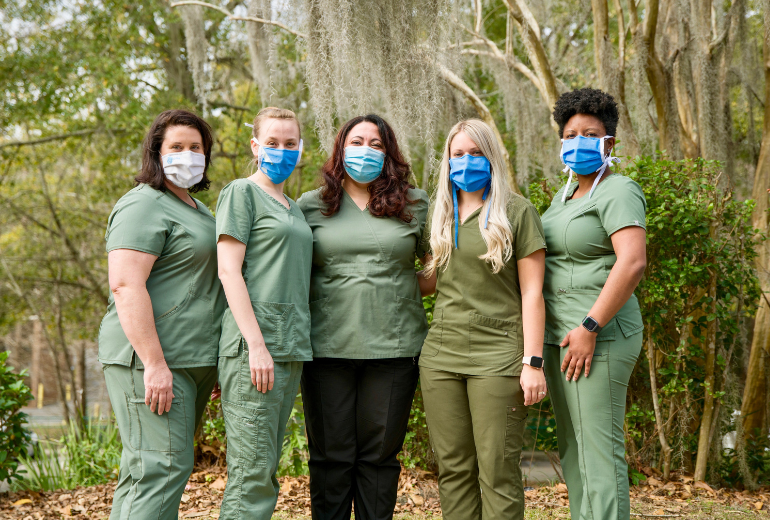Error message
The Tallahassee Memorial Cancer Center is known for its highly-trained medical team and for delivering the most powerful treatment options, all under one roof.
This November we are bringing awareness to lung cancer specifically in honor of Lung Cancer Awareness Month.
Today, lung cancer is one of the most diagnosed cancers in men and women. Although lung cancer often takes many years to develop, there are various types of lung cancer and each is treated differently.
The two most common types are named for how the lung cancer cells look under a microscope:
Small Cell Lung Cancer
Small cell lung cancers tend to spread quickly. People with limited stage small cell lung cancer usually undergo radiation therapy and chemotherapy treatments. For a very small lung tumor, a person may have surgery and chemotherapy. Most people with wide stage small cell lung cancer are treated with chemotherapy only. About 13 percent of lung cancers are small cell lung cancer.
Non-Small Cell Lung Cancer
Non-small cell lung cancer spreads more slowly than small cell lung cancer. People with non-small cell lung cancer may undergo surgery, chemotherapy, radiation therapy or a combination of treatments. The treatment choices are different for each stage. Some people with advanced cancer receive targeted therapy. About 87 percent of lung cancers are non-small cell lung cancers.
A number of factors may increase your risk of lung cancer. Some risk factors can be controlled, for instance by quitting smoking. Other factors can't be controlled, such as your family history.
Risk factors for lung cancer include:
- Smoking - Your risk of lung cancer increases with the number of cigarettes you smoke each day and the number of years you have smoked. Quitting at any age can significantly lower your risk of developing lung cancer.
- Exposure to secondhand smoke - Even if you don't smoke, your risk of lung cancer increases if you're exposed to secondhand smoke.
- Exposure to radon gas - Radon is produced by the natural breakdown of uranium in soil, rock and water that eventually becomes part of the air you breathe. Unsafe levels of radon can accumulate in any building, including homes.
- Exposure to asbestos and other carcinogens - Workplace exposure to asbestos and other substances known to cause cancer — such as arsenic, chromium and nickel — also can increase your risk of developing lung cancer, especially if you're a smoker.
- Family history of lung cancer - People with a parent, sibling or child with lung cancer have an increased risk of the disease.
For more information on lung cancer and treatment options, please visit TMH.ORG/Cancer.





